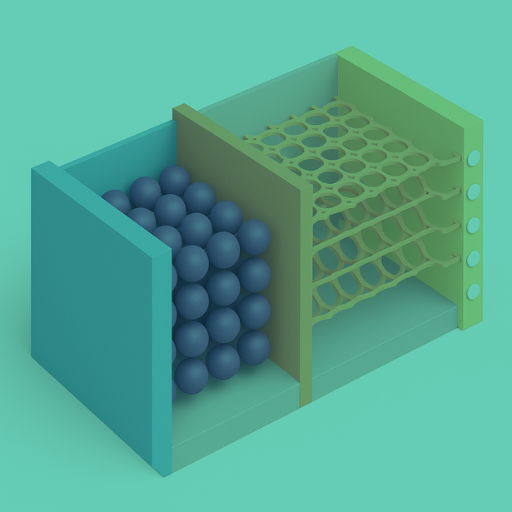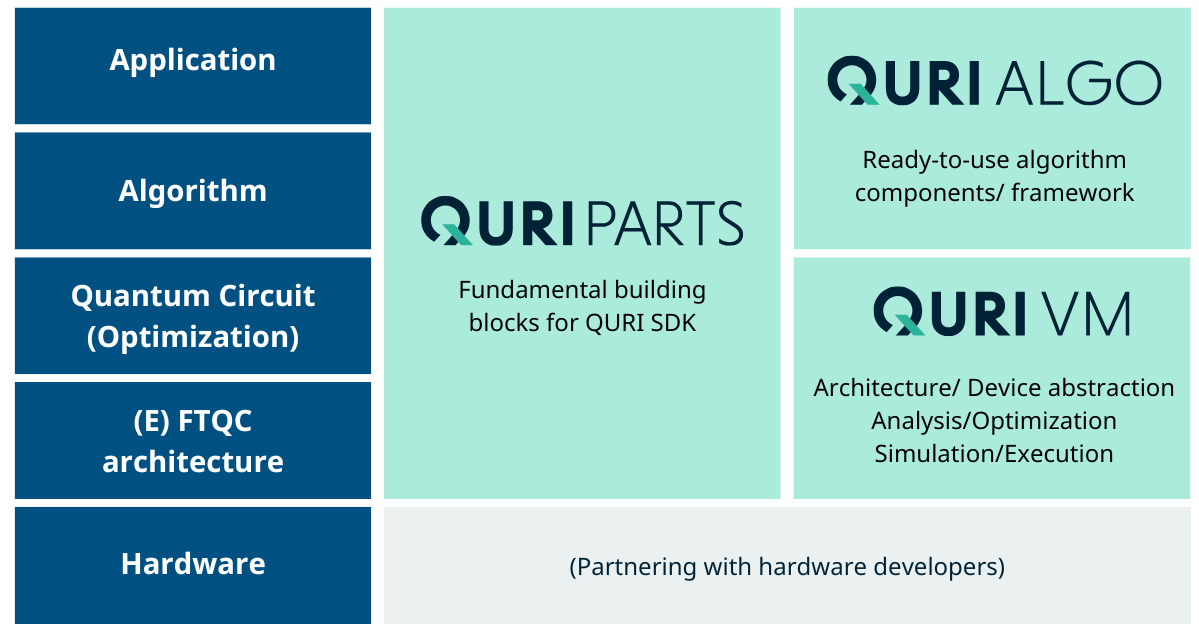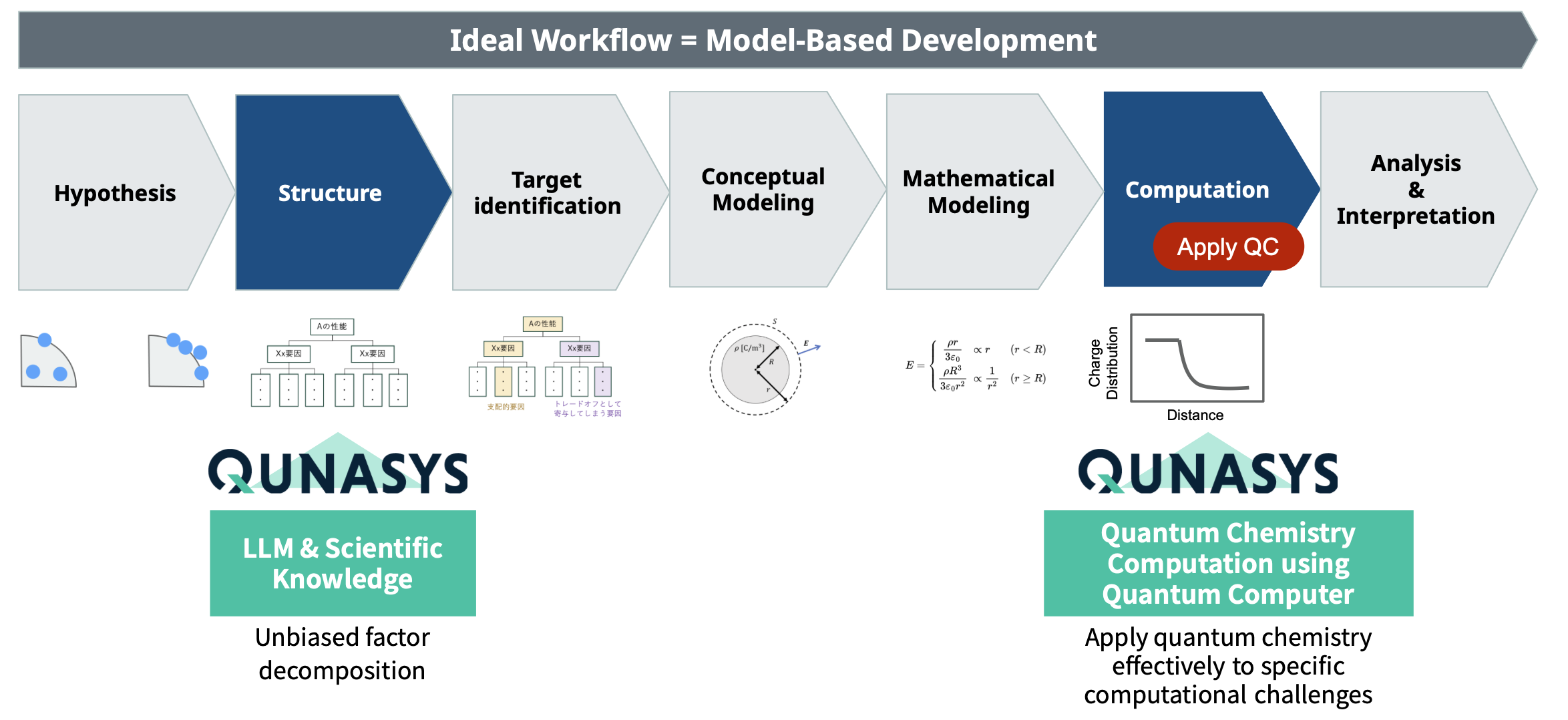Services
Shaping the Future
with the Power of Quantum
Technology
We drive the real-world adoption of quantum technologies by delivering impactful solutions across three core service areas.
01 Research Accelerating Business Transformation with Quantum Computing
By bridging cutting-edge academic research with real-world industry needs, we strive to unlock large-scale breakthroughs unique to quantum computing. Let’s start with what’s possible today-and get ready together for the quantum-powered future.

Chemical Simulation 
Condensed Matter Simulation 
Computer-Aided Engineering 
Battery Material Simulation 
Faster Drug Discovery 
Catalyst Design
02 Software Opening the Door to Quantum Computing
We offer the QURI SDK - a research-oriented toolkit built to adapt
to the evolving landscape of quantum hardware and architectures.
Start building your assets today, and shape the future of quantum
computing with us.

QURI SDK provides a hardware- and architecture-agnostic development
environment along with a comprehensive algorithm library tailored to
domains such as chemistry, materials science, and computer-aided
engineering (CAE).
It enables quantum technology exploration today while paving the way
for tomorrow’s technologies.
03 Consulting Transforming the Way We Develop Materials
We help you build a computation-ready environment and seamlessly
integrate computational chemistry into your workflow.
Step away from intuition-based trial-and-error - and move toward
data-driven innovation.

We identify where computational methods can create real impact and
propose optimal solutions by integrating classical computing,
machine learning, and quantum technologies.
From research design to large language models specialized in
chemistry, we help seamlessly connect simulation and
experimentation.
Growing the Quantum Ecosystem
Shared Knowledge. Quantum Readiness.
Accelerating quantum adoption requires cross-industry collaboration
and shared expertise.
At QunaSys, we unite businesses, researchers, and policymakers to
cultivate a future-ready quantum ecosystem.

We operate QPARC, one of the largest communities focused on quantum adoption. It brings together industry and academia to exchange insights, explore possibilities, and drive real-world implementation of quantum computing. By bridging sectors, QPARC accelerates the quantum shift in business across industries.
MEMBERS

Together with industry partners, we lead
SDQs - a collaborative research initiative
exploring how quantum technologies can contribute to solving
ESG challenges such as carbon neutrality, sustainable energy,
and environmental impact reduction.
Press Release
MEMBERS
Learning Resources by QunaSys
Quantum Native Dojo
Getting Started with Quantum Computing
Quantum Native Dojo is a self-paced learning program for
beginners, designed to cultivate Quantum Natives -
individuals who intuitively understand and effectively
engage with quantum mechanics.
By nurturing such talent, we aim to expand the community of
researchers and engineers driving the development of quantum
technologies.
The curriculum spans a wide range of topics, from the basic principles of quantum computing to foundational algorithms, and their real-world applications in fields such as quantum chemistry and finance.
Qulacs
Quantum Circuit Simulator
Qulacs is a high-performance quantum circuit simulator
designed for quantum computing research. Written in C++ and
accessed via a Python interface, it combines speed with
user-friendly accessibility. Noise-free classical simulation
is essential for designing and testing quantum algorithms.
At QunaSys, we actively use Qulacs in our quantum computing
R&D.
Originally developed by the
Fujii Laboratory at Osaka University , Qulacs is now maintained and further extended by QunaSys
- including ongoing improvements and the development of new
features.
We welcome participation in the Qulacs Slack community, research collaborations using Qulacs, and contributions on GitHub - from feature suggestions to development of new capabilities.
